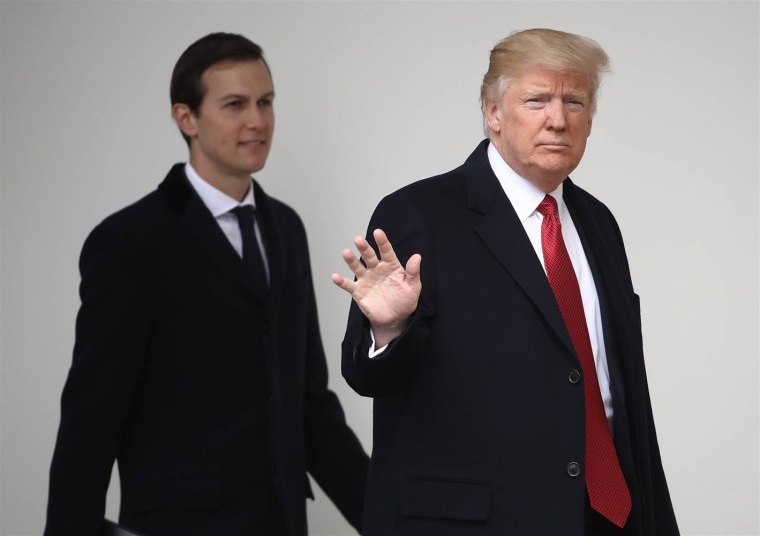Donald Trump, irrationally confident that he can help negotiate a Middle East peace agreement, put the entire process in the hands of his young son-in-law, Jared Kushner, who has no background in diplomacy or foreign policy.
In fact, the American president has expressed great confidence that Kushner is uniquely well suited to reach an agreement between Palestinians and Israelis, saying of his son-in-law, "If you can't produce peace in the Middle East, nobody can. OK. All my life I've been hearing that's the toughest deal in the world to make. And I've seen it, but I have a feeling that Jared is going to do a great job."
With this in mind, Kushner announced plans to unveil key elements of his plan at a conference next week in Bahrain. Politico recently reported, "A number of leading Arab countries, as well as Israel, plan to attend the conference."
At least, that was the idea. Axios reported yesterday that the plan to bring peace to Israelis and Palestinians will be unveiled at an event without Israelis or Palestinians.
The White House has decided not to invite the Israeli Minister of Finance Moshe Kahlon or other Israeli government officials to the Bahrain conference in Manama on June 25, where it plans to launch the economic part of the Trump administration's Israeli-Palestinian peace plan, U.S. officials told me.The decision follows a Palestinian boycott of the conference, which has put pressure on other Arab and Muslim nations not to attend.... The Bahrain conference will now take place without Israeli or Palestinian officials.
This comes three weeks after Secretary of State Mike Pompeo privately expressed great skepticism about the prospects of the White House strategy -- Trump himself conceded that Pompeo "may be right" -- and two weeks after Politico reported that even Trump allies are "intensifying calls to scrap the rollout" of Kushner's blueprint.
It's almost enough to make one wonder about the wisdom of putting the Middle East peace process in the hands of a young presidential son-in-law with no experience in diplomacy or foreign policy, answering to a president with no interest in diplomacy or foreign policy.
As regular readers may recall, it was just three months into his presidency when Trump declared with confidence, “I want to see peace with Israel and the Palestinians. There is no reason there’s not peace between Israel and the Palestinians – none whatsoever.” There are, of course, all kinds of things standing in the way of peace, though the president didn’t appear to recognize them.
He was, however, quite serious about the attitude. A month later, Trump boasted there’s a “very, very good chance” his administration would help strike a deal for Middle East peace. “It’s something, frankly, maybe not as difficult as people have thought over the years,” the president added.
Perhaps now would be a good time for him to revisit this assessment.
